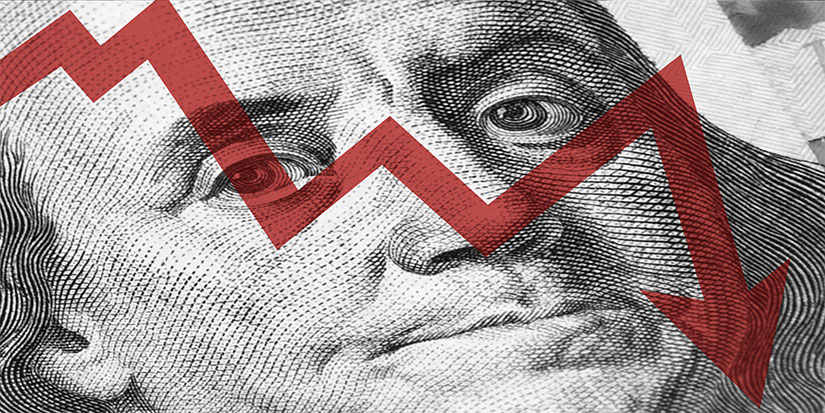
How Much Pain Can You Take?
The market is not going to go straight up and to the right. You will experience drawdowns. Prepare accordingly.

It Might Be a Bad Year
2024 might be a bad year. We might get a recession. We might get a bear market. We might get a housing collapse. We might get a war. We might get political turmoil. Actually, that is definitely going to happen.

It Takes Three Traits to Become a Successful Trader
One of the biggest requirements to be a successful investor is to be emotionally healthy.

Invest, Then Investigate
Years ago, circa 2013, I kept hearing about the cryptocurrency bitcoin (BTC). I didn’t investigate it at the time when it was trading around $100.

The Secret to Investing in the Stock Market
A lot of people think stocks are easy and bonds are hard because there’s a lot of math in bonds.
If you’ve taken my Bond Masterclass, you know it’s not that complicated. You don’t need to be a genius to figure out the world of bond investing and how bonds can help you build a well-rounded, sustainable portfolio.
Yet there’s a staggering number of people who put their money in stocks compared to those in bonds. Why? There’s no math in stocks. Stocks go up, you make money. Stocks go down, you lose money. Pretty simple. This is why people like stocks… because they’re easy.
By the way, there is some complicated math in stocks that people don’t understand, but if you have a grasp of it, you can make a lot of money.
I'll give you a hint: It’s when you realize that stocks are exponential functions.
You Need Some Income in Your Portfolio
Let’s talk dividends…
Some stocks pay dividends; others don't. Some stocks pay dividends because companies have extra cash and want to return it to shareholders. That’s the purpose of a dividend.
If you go back 50 years, most stocks paid them. A lot fewer stocks pay dividends these days, and some stocks don’t pay dividends because companies are keeping cash to invest for future growth. I don’t entirely understand this argument.
For example, Google does not pay a dividend. Google is a mature company with stable cash flows. The search business pukes out a whole bunch of money. It should pay a dividend.
If you go back 10–20 years ago, bonds yielded way more than stocks. People invested in bonds for income and stocks for capital gains. As of a couple years ago, people started investing in stocks for income and bonds for capital gains, which is totally backwards.
But the main takeaway is that you need some income in your portfolio because income reduces the volatility of your returns.
So, how do you do that?
|
Over the past 50 years, this portfolio has gone up 4,491% and is as set-it-and-forget-it as it comes. Jared Dillian's Awesome Portfolio is designed to outperform over decades, no matter what happens. If you're looking to take the stress and guesswork out of investing and sleep better at night knowing you have a proven plan for success in the markets, click here to see if the Awesome Portfolio is right for you |
All You Need to Know Is This One Trick
I'm going to give you the secret to investing in the stock market…
You don’t need to know anything else. All you need to know is this one trick. Are you ready? Here it is: You want to invest in stocks with dividends where the dividends are growing. That’s it.
If you are investing in mutual funds, any income fund will do. And if you drill down into some of these various funds, you will find that they’re all different. Some are stuffed with energy, some are stuffed with tobacco, some are stuffed with utilities, but it doesn't matter that much. You want to look for income funds.
If you go to Vanguard, Fidelity, or any big asset manager and scroll through the list of mutual funds, you’ll see there are growth funds, income funds, value funds, and growth and income funds if you want to mix your peas and carrots.
Income funds is what you’re looking for, though. That is how you invest in stocks with high dividends.
And remember, you want to invest in stocks with dividends where the dividends are growing.

Jared Dillian, MFA
|
